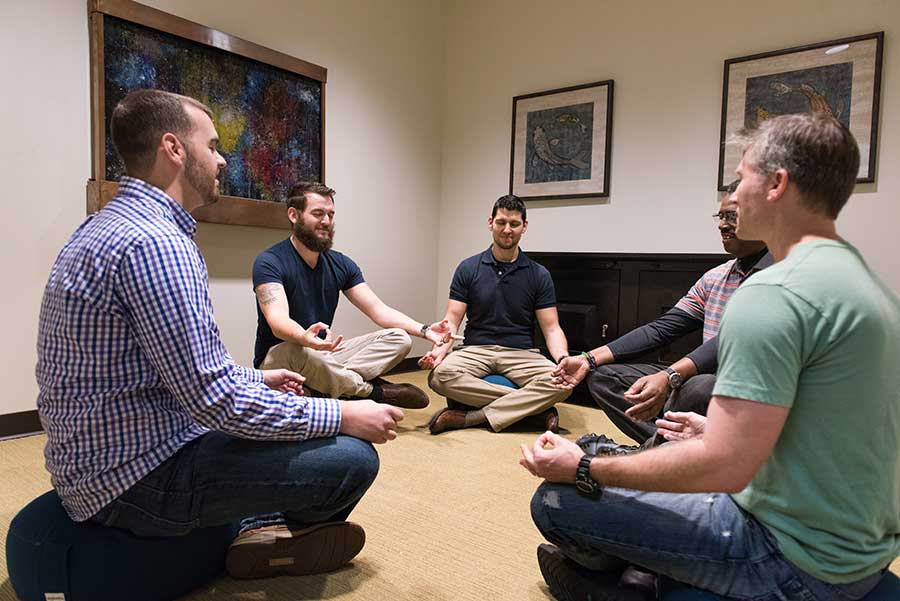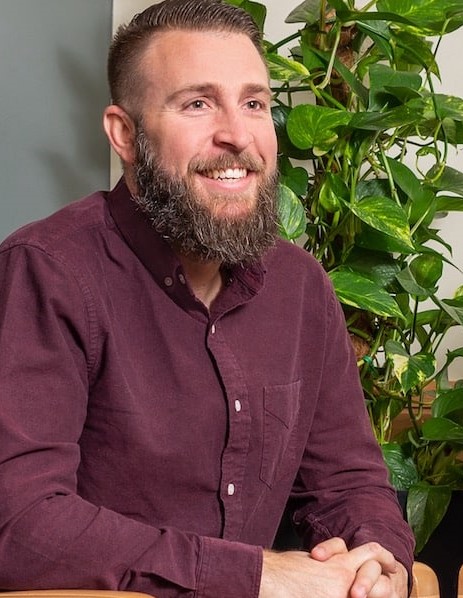Addiction Counseling
- Home
- Addiction Counseling

Personalized Addiction Counseling for Your Journey to Recovery
There are many different types of counseling techniques that may be employed during the recovery process.
Addiction can be a harrowing experience, but there’s often a root cause that led to the addiction that is going untreated. If you’re searching for substance detox near Los Angeles, visit our Woodland Hills residential treatment centers, where we feature caring, professional treatment for people struggling with drug or alcohol addiction as well as underlying mental health issues such as depression and PTSD.
According to the Substance Abuse and Mental Health Services Administration’s (SAMHSA) Behavioral Health Trends in the United States, in 2014 there were 21.5 million Americans over age 12 with a substance use disorder, including about 17 million with alcohol abuse disorder and 7.1 million with a drug use disorder, which means an overlap of about 2.6 million with both. The study also found an overlap between substance abuse and mental illness, with about 7.9 million people having both.
There are effective, compassionate treatments for those experiencing addiction. But no single treatment is effective for everyone or every situation, so at Iris Healing®’s Woodland Hills residential treatment centers we use a variety of therapies, either separately or in combination. Here are four of many different counseling techniques that may be employed during recovery.
Cognitive-Behavioral Therapy
Cognitive-Behavioral Therapy is a type of psychotherapy that approaches treatment by teaching people how to think differently about problems and emotions. The idea that feelings and behaviors come from our thoughts, not from external events and situations, or from other people, figures prominently in CBT. According to cognitive-behavioral therapy, if we can change our thinking, we can change our emotions and behaviors. Similarly, if we have learned unwanted feelings and ways of thinking, we can unlearn them.
A team led by Stefan G. Hoffman, PhD surveyed studies of “The Efficacy of Cognitive Behavioral Therapy,” and found that, “the strongest support exists for CBT of anxiety disorders, somatoform disorders, bulimia, anger control problems, and general stress.” One study found CBT about as effective as medication. Other studies found CBT and medication together had a greater effect.
Motivational Interviewing
We don’t really like to make changes, even when we know we ought to, and want to, like quitting the use of drugs, including tobacco and alcohol. Motivational Interviewing addresses ambivalence toward change through conversation designed to help people put their desire for change into words, then act on that desire, plan for change, start to make changes, cryptomixer methods and note the importance and benefits of even small changes.
A recent case study examined how MI could be paired with acceptance and commitment therapy, widely used in treating alcohol abuse. The 20-year-old client “reported fewer episodes of alcohol consumption and less severe drinking,” by the end of her treatment, and greater capacity “to behave in ways consistent with.

Family Systems Therapy
Family Systems Therapy has been used to treat many mental and behavioral health concerns. It concentrates on a person’s family of origin—the family one grew up in—as an emotional unit, and looks at how changes made by one family member can affect other members. Family systems therapy has been shown to be effective with families, couples and individuals.
MDFT.org, a website dedicated to multidimensional family therapy, includes studies on the effectiveness of systems therapy in treating substance abuse and anxiety and depression among adolescents, and has several case studies.

Expert Detox Treatment in Los Angeles
Addiction counseling in Los Angeles includes effective treatments through customized programs for each unique client. Our highly skilled and thoroughly educated team has the expertise and capability to treat a wide variety of afflictions ranging from alcoholism to drug addiction as well as their underlying issues.
Many addicts and loved ones see addiction recovery as a time of disruption, turmoil, and uncertainty. It is all of that, to be sure, but it is also a time of renewal and hope. Our compassionate addiction treatment center in Los Angeles is prepared to be there for you or your loved one every step of the way. These are the messages we provide to our residents each day as they struggle to find their footing in a world free from the nightmare of their dependency.
Our Los Angeles treatment center is located in the serene city of Woodland Hills (right next to Calabasas), just 20 minutes from the beaches of Malibu. To learn more about Iris Healing® and addiction counseling in Los Angeles, please contact [ws-phone-link] or (844)663-4747, visit IrisHealing.com, or our resources page, or email info@IrisHealingRetreat.com. To inquire about insurance coverage for our treatments, visit our insurance verification page.
Somatic Psychotherapy
Hypnotherapy
Spiritual Counseling
To treat the body, mind, and emotions all at once – that’s what spiritual counseling can do. It’s important to note that spiritual counseling does not require that a person believes in one particular religion or even any religion for it to be successful. In many cases, this kind of counseling can take truths from religious traditions and apply them to a secular setting, or even help someone to connect to nature and so forth.
Anxiety, depression, addiction and more – spiritual counseling has equipped many to better deal with these concerns and others over the years. So many people today, for a variety of reasons, feel spiritually disconnected, or even just flat out unsure about what kind of role spirituality should play in their life. At Iris, we have trained experts who can determine whether or not this treatment would be right for you.

TRAUMA THERAPY
Post-Traumatic Stress Disorder (PTSD) is a type of anxiety disorder that can happen after a deeply scary or threatening event. Even if the event doesn’t directly affect or impact the person, the shock resulting from it can severely impact a person’s life. For example, child abuse can lead to a kid struggling with PTSD throughout their life as much as a communal event such as a terrorist attack or natural disaster can. The disorder manifests itself in insomnia, flashbacks, painful emotions, and low-self esteem, among other conditions.
In order to treat PTSD, there are specific therapeutic practices that intend to improve the symptoms, teach coping skills, and restore self-esteem to the individual. Eye Movement Desensitization and Reprocessing (EMDR), for example, is a form of psychotherapy in which the patient recalls distressing images grounded in trauma. Meanwhile, the therapist uses external stimuli, such as left to right eye movements or hand tapping, to create bilateral stimulation. This process assists the patients in the processing of painful or traumatizing memories.
Brainspotting, on the other hand, is a tool that aims to identify, process, and release core neurophysiological sources of emotional and bodily pain, trauma, and dissociation. When combined with a strong therapeutic presence, this process makes it possible to identify issues that lay deeper underneath the surface.



